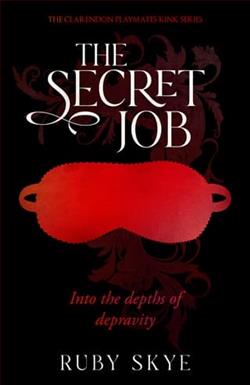Page 14 of The Christmas Box
I spin to find Helen approaching behind me, wearing the same inviting smile as usual.
“Yeah, I moved a chest of drawers for her. I felt bad, though,” I admit. “I couldn’t understand her when she spoke.”
Helen just pleasantly head-shakes it away. “She’s used to it. She had a stroke.”
After seeing how it left someone who probably thought she was in her prime, I wince at the word. “She seems young for that.”
Helen shrugs, walking alongside me now. “It happens. She’s a sweet soul. Lonely. Her family doesn’t visit much.”
“That sucks.”
Helen just nods. “It’s that way for a lot of the residents. They get forgotten. Left behind.” She reaches down to give my hand a quick squeeze. “That’s why it’s so good that you’re here for your dad. I know it’s disrupting your life right now. But you’re a good son.”
Such a gross inaccuracy makes me draw back slightly—accepting wrongful praise doesn’t feel right. “I only came because Wally asked me to. In fact, he pretty much insisted. So I’m not that great of a son—trust me.”
But she still seems set on letting my inadequacies slide. “You’re here. Pretty much every day. If you’re not a good son, you’re faking it well.”
We’re nearing the front door now, so rather than argue the point, I just say, “See you tomorrow, Helen.”
“You probably don’t realize this,” she goes on, “but for many people here, I’m the last face they see, the one holding their hand as they die. It’s heartbreaking.”
Everythinghere is heartbreaking. But I don’t tell her that. She and the rest of the staff do everything they can for the people in their care.
“That’s why it matters,” she continues as I stop to look back at her. “That you’re here. One less person has to pass from this world feeling alone.”
As I cross the snowy parking lot to my truck, I know I’m still faking it, just like she said. And I can’t help thinking my dad is doing a good job of faking the good-father routine, too. No one knows the details of our history other than Mom walking out on us, so even people here at the manor who see him smiling and being nice—they don’t understand what my teen years were like. Helen might think I’m a good son, but I’m just going through the motions—until I’m done and can leave for a second time, never to darken this town’s doorstep again.
Next up on my agenda today: a trip out to the farm. I’ve promised Lexi Hargrove a “magical” wooden box, and my dad’s old workshop will likely have everything I need. I could’ve constructed it in the storefront where I’m working—but I didn’t bring my hand-carving tools, so I can use Dad’s.
The narrow road leading to where I grew up hasn’t been cleared of snow yet, but the truck takes every curve with ease. When I pull up outside the modest white farmhouse, I study it from the gravel drive. It could use a coat of paint, but otherwise looks about the same as I remember. On the far side of the front yard stands a large apple tree that never produced fruit—but a tire swing the old man put up when I was little still hangs from a thick rope I can’t believe hasn’t rotted away. Vague memories of him pushing that tire, me holding on tight and laughing as it swung in the summer breeze, flash briefly in my head.
I should check on the house again. My grandfather once told me a house that isn’t lived in falls into disrepair quicker. “Almost like it knows it’s being neglected,” he said. I haven’t been here for a week, so I pull a keychain from my pocket—one that’s gotten heavier lately with Dad’s keys—and unlock the front door.
It smells musty, so despite the furnace bill, I open a couple of windows, figuring it’s just for a few minutes. I walk around checking things out. Familiar curtains, now faded, hang in the windows of my youth. I turn on faucets and flush toilets, just to keep them all doing what they’re supposed to do. Eyeing the old washer and dryer, tucked into a tiny room off the kitchen, it occurs to me I could bring my laundry here rather than search out a laundromat. I have a moment of missing the modern laundry room in my Chicago townhouse—luxurious in comparison to everything here—but maybe it’s good to be reminded where I come from and how far I’ve gotten.
That’s when I head toward a room I didn’t enter in my quick in-and-out last week—my boyhood bedroom. I wonder what the old man’s done with the place.
And when I walk through the doorway, I couldn’t be more stunned to see…it’s exactly as I left it. Same blue patchwork quilt on the bed, made by my grandmother. Same red beanbag chair. Same posters on the wall of Katy Perry and Jennifer Lawrence.
It’s a little too blast-from-the-past for me, though. Too much like I just stepped back in time. My chest tightens slightly.
Who was I then? An angry kid with every reason to be angry. A scared kid, who knew I needed to get out of here, but had no idea where I was going. A hurt kid, whose mother abandoned him and whose father neglected him. I leave the room, giving my head a brisk shake to clear out those old cobwebs.
Making my way back to the living room to close the windows and shut out the wintry air now pouring in, I’m still caught off guard that he never changed it. Was he just too lazy?Or…did he think I was coming back someday?
I’m about to lock the place back up and head out to the workshop when my eyes fall on a framed picture next to the spot where his recliner used to sit facing the TV. It’s of…me. I was about ten. I’m smiling wide—not cool enough to scowl at cameras yet—and holding up a big largemouth bass I caught fishing with Dad at Winterberry Lake. I’d forgotten about that day. Maybe I’ve forgotten about actualgooddays when I was a kid, too traumatized by the bad. But what throws me the most is that he went to the trouble to putting this picture in a frame and sitting it where he spent the most time.
Unlocking the old workshop a few minutes later takes me on another unwitting trip down memory lane. It’s an old garage on which Dad bricked up the wide door when he decided he needed a workshop more than Mom needed a place to park her car. Bad decision—maybe the beginning of the end for them, or at least an early indicator that her needs didn’t come first. For me, though, it was—I’m forced to realize now—the place where I learned my trade.
It smells like old wood and sawdust, and I can see the remnants of Dad working here as recently as a few months ago. I load up the old black potbelly stove in the corner with some dry wood and kindling from a pile near the door, and am pleased to find out I still know how to build a fire even though the fireplace at my townhouse flips on with a switch.
Dad’s collection of wood-carving tools still lines two drawers of the red Craftsman tool cabinet his father gave him on his twenty-first birthday, and their worn oak handles take me back. My tools are newer, maybe a little fancier—but these are dependable and familiar, the ones I learned with, my dad watching over me.
I also find enough spare scraps of cedar to make the box. Since I don’t have the time to dovetail the joints, I mitre them instead. At the shop in town, so far I’m mostly just cutting and preparing the wood and haven’t gotten to the actual building part yet, so this feels good. The level of concentration it takes relaxes me until I get a little lost in it, something I’ve always liked about carpentry. For me, it’s a way to turn off the rest of the world—nothing matters but the project in front of you. And, as always, even with just a simple box, the act of seeing something evolve where it wasn’t before is satisfying.
When the box is square and smooth, with the requested slot on top, it’s time to create the magic she asked for, and that’s where the carving tools come in. Opening one of the red drawers, I select a three-millimeter U-gouge and begin to free hand a curvy, curly design on one side. I like how it looks and keep going – it takes a while, but I carve out the swirls on all four sides and the top until it feels done. I picked up some primer and paint this morning before heading to the manor, and after a couple coats of snowy white, the box looks like it could have come straight from the North Pole.
I check the fire to see it’s dying down, then clean up a little. Dad left things pretty sloppy, so I start stacking wood remnants—and that’s when I spot one more thing that throws me. Resting on a shelf above the workbench is a little wooden sailboat so rudimentary it looks almost primitive in style. The wood remains bare but for a number eleven painted in blue on the wooden sail. It’s the first little project I ever created out here. He wasn’t even teaching me yet—it was more me hanging around when I was seven or eight, and him giving me a little pile of scraps, instructing me to see what I could make with it while he worked. I don’t know why a sailboat came to mind, but through mimicking his sawing and cutting, whittling and carving, hammering and nailing, my crude little sailboat came into being.















